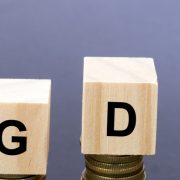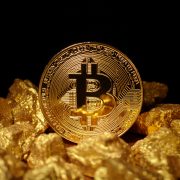Though politicians and economists continue to presume otherwise, money is a veil. Changes in its value cannot change the real price of anything. That’s one of many reasons why the devaluation so routinely cheered by politicians and economists brings certain pain beyond the loss of purchasing power for everyone who is paid in the devalued currency.
Considering the dollar, when Treasury makes devaluation its policy, it’s explicitly shrinking what the dollar can command in the marketplace. This harms typical earners, but also corporations when it’s remembered that global cooperation is required for the production of anything, including the prosaic pencil. If the currency is debased, imported inputs increase in currency cost, thus erasing any supposed “export advantage.”
But the much bigger story concerns investment. Stating the obvious, investment, not currency devaluation, is what renders businesses most competitive globally. Investment is the failure-laden process whereby businesses learn what does and doesn’t work when it comes to producing more and more goods and services with fewer and fewer hands. Investment is expensive precisely because it generates so many proverbial dry holes. But there’s no progress without those dry holes, which speaks to the horrors of devaluation.
Specifically, investors who invest dollars in intrepid fashion hope to achieve impressive dollar-based returns in the future. More on this in a bit, but when it’s understood how investors seek returns in currency, it’s hopefully understood that devaluation exists as a horrid tax on investment. Why put money to work if the exchangeable value of future (if any) monetary returns is being shrunken by monetary authorities?
Yet economists say devaluations make country economies more competitive. Yes, economists believe what is absurd. Let’s just say that this near monolithic view within economics says a lot about the economics profession, and very little about prosperity other than how to shrink it.
Which brings us to Facebook’s recently announced crypto or private currency, the Libra. Time will tell, but currency types may look back on this development as the beginning of something much bigger.
It could be simply because no one trades money. Please read on. With trade it’s always and everywhere products for products. We can’t eat money or sleep with it, rather we can just hope that “money” will maintain its reputation in the marketplace so that it’s exchangeable for something else.
I make bread, I want the vintner’s wine, but the vintner looks longingly at the butcher’s meat. Money can’t alter the terms of trade for the three producers mentioned as much as it, in its proper form, is an agreement about value that facilitates exchange among producers with varying wants.
Crucial here is that producers logically don’t want to exchange their real production for money that floats around in value. To do so would be for a producer to occasionally get ripped off, or alternatively, for the buyer to be ripped off. With money that’s no longer an agreement about value top of mind, is it any surprise that trade disputes among countries have soared since the 1970s when money’s (specifically the dollar to which global currencies were pegged) commodity link was severed?
That’s what’s so intriguing about the Libra. Facebook seems to be acknowledging that floating money can’t as effectively serve its sole purpose as a medium of exchange precisely because its value is a moving target. Let’s once again never forget that it’s products we’re exchanging, not money. So long as the currency varies in terms of value, losers are needlessly created even though trade is all about both sides entering a transaction in order to improve themselves. Similarly, and when money floats, losers are needlessly created with the investment process as investors get back soggy dollars, or those invested in give up more of what they’ve created thanks to monetary uncertainty.
Facebook’s answer is pegging the Libra to a basket of currencies. That it’s doing so is very important in consideration of the company’s implicit acknowledgment that money isn’t very useful if its value is once again indeterminate. At the same time, there are obvious problems with the currency basket peg. For one, all major currencies float today. For two, despite the dollar’s own unfortunate volatility since the ‘70s, it remains the world’s currency. Every other currency has at least a vague peg to the greenback, and in some instances an explicit one. Translated, the Libra likely won’t get too much of a stability advantage from its basket peg. Better yet, the only peg that matters is the one to the currency that factors into just about every global trade. And the dollar’s value is very much a moving target.
But that’s nitpicking at this point. To see why, let me offer you 1 bitcoin per month over the next year – 12 in total – to remodel my kitchen. Your response will logically be “which Bitcoin? The one that traded for $5,000 a month or two ago, the one that trades for $9,000 at present, the one exchangeable for under $1,000 a few years ago, or the one that fetched $22,000 in early 2018?” Since Bitcoin has no peg, it’s not very useful as a currency except for in the most short-term of transactions. Facebook should be cheered for once again acknowledging the importance of stability.
Will it succeed? It’s hard to know. Exciting is that given the global nature of the Facebook brand, it’s not unreasonable to foresee a future in which Libra is an increasingly accepted and circulated medium of exchange. Even better would be if Facebook eventually jettisoned floating money for currency definers known for even greater stability. One can dream.
Still, Facebook’s announcement speaks to progress about private measures used to facilitate exchange, along with acknowledgment that money is best and most circulated when its value is broadly agreed to thanks to stability of the value. The Libra has the potential to mark the start of something because if widely used, it will open the eyes of the global population to a truth about money: it works best when its value is stable, plus it needn’t be a government creation.
A version of this piece ran at Forbes.
John Tamny is editor of RealClearMarkets. A version of this piece ran at Forbes.com.












